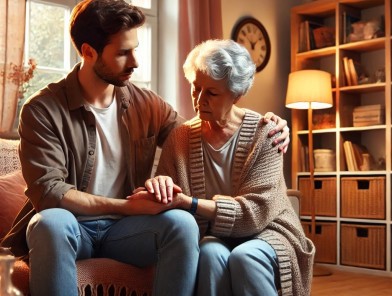Sex work, while providing a livelihood for many, often comes with inherent risks. The nature of the job can expose workers to various threats, ranging from physical assault to emotional abuse. For Fayetteville escorts and escorts in Salt Lake City, ensuring personal safety is paramount. This comprehensive article delves into self-defense tactics and strategies that can help sex workers protect themselves, avoid confrontations, and effectively manage dangerous situations when they arise.
Understanding Risks and Self-Defense Strategies for Escorts
Understanding the risks involved in sex work is the first step towards mitigating them. Escorts and sex workers often meet clients in private settings, which can make them vulnerable to harm. These risks are compounded by the stigma and legal issues surrounding sex work, which may deter workers from seeking help. However, by implementing practical self-defense strategies and adopting a proactive approach to safety, sex workers can better protect themselves and navigate their professional lives with greater confidence.
Building a foundation of safety begins with awareness and preparation. One of the most critical aspects of self-defense is situational awareness, which involves being conscious of one’s environment and recognizing potential threats. For sex workers, this means paying attention to the behavior and demeanor of clients, noting any red flags, and trusting their instincts. If something feels off, it often is. Being vigilant and attuned to one’s surroundings can prevent many dangerous situations from escalating.
The Importance of Communication and Client Screening for Escorts
Effective communication is another vital component of self-defense. Clear and assertive communication helps establish boundaries and expectations, making it less likely for misunderstandings or unwanted advances to occur. Escorts and sex workers should feel empowered to articulate their limits and make it clear when a client’s behavior is unacceptable. This assertiveness not only sets the tone for interactions but also demonstrates confidence, which can deter potential aggressors.
Preparation extends beyond mental readiness to physical precautions. One essential strategy is conducting thorough client screenings. This can include verifying the client’s identity, checking references, and using booking systems that require personal information. Many sex workers use online forums and networks to share information about safe clients and to warn others about problematic individuals. Leveraging these resources can significantly enhance safety.
Choosing Safe Locations and Self-Defense Tools for Escorts
In addition to client screenings, choosing the right locations for meetings is crucial. Whenever possible, sex workers should select familiar and secure environments. Meeting in places where there are security measures, such as cameras or staff, can provide an added layer of protection. If meeting at the client’s location, informing a trusted friend or colleague about the details of the appointment, including the address and expected duration, can serve as a safety precaution.
Carrying self-defense tools is another practical measure. Items such as pepper spray, personal alarms, and even simple objects like keys can be effective deterrents. These tools should be easily accessible and workers should be trained in their use. Self-defense classes specifically tailored for sex workers can provide valuable skills and techniques for defending against physical attacks. Martial arts, such as Brazilian jiu-jitsu or Krav Maga, teach practical moves that can incapacitate an attacker and create an opportunity to escape.
De-Escalation and Self-Defense Techniques for Escorts
Despite all precautions, there may be situations where a confrontation is unavoidable. In such cases, de-escalation techniques can be life-saving. The goal of de-escalation is to calm the situation and reduce the likelihood of violence. This involves maintaining a calm and composed demeanor, using non-threatening body language, and speaking in a steady, soothing tone. Avoiding confrontational language and actions can help diffuse tension and allow for a safer resolution.
If a physical altercation does occur, knowing how to defend oneself is crucial. Self-defense techniques should focus on creating an opportunity to escape rather than engaging in a prolonged fight. Simple but effective moves include targeting vulnerable areas such as the eyes, throat, and groin. Techniques that leverage the attacker’s momentum, such as wrist locks or throws, can also be useful. The objective is to quickly incapacitate the attacker enough to make a safe getaway.
Mental Resilience and Support Networks for Escorts
In addition to physical self-defense, understanding psychological tactics is important. Attackers often rely on fear and intimidation to control their victims. By maintaining mental resilience and not succumbing to panic, sex workers can better manage dangerous situations. Mental conditioning through regular self-defense training can enhance confidence and preparedness.
After any incident, seeking support is vital. Many sex workers fear reporting assaults due to the stigma and potential legal repercussions. However, connecting with support networks, such as sex worker advocacy groups or counseling services, can provide the necessary emotional and practical support. Documenting the incident thoroughly, including details of the attacker and the event, can also be helpful for any future legal actions or reporting.
Legal Rights and Community Support for Escorts
Sex workers should also be aware of their legal rights and the resources available to them. Understanding local laws and regulations regarding sex work and self-defense can provide clarity on what actions are permissible. Many regions have organizations that offer legal assistance and advocacy for sex workers, helping them navigate the complexities of the legal system.
Building a strong community network is another key aspect of ensuring safety. By fostering connections with other sex workers, sharing experiences, and creating a supportive environment, individuals can collectively enhance their safety. Community networks can offer advice, share warnings about dangerous clients, and provide a sense of solidarity that can be empowering.
Empowerment Through Education and Digital Security for Escorts
Empowerment through education is also crucial. Regular workshops and training sessions on self-defense, legal rights, and personal safety can equip sex workers with the knowledge and skills they need to protect themselves. These sessions can cover a range of topics, from physical defense techniques to digital security measures, ensuring a comprehensive approach to safety.
Digital security is an often-overlooked aspect of personal safety for sex workers. With many transactions and client communications occurring online, protecting one’s digital presence is essential. Using secure communication channels, employing strong passwords, and being cautious about sharing personal information can prevent unauthorized access to accounts and sensitive data. Regularly updating privacy settings on social media and using encrypted messaging apps can further enhance digital security.
Ensuring the safety of escorts and sex workers requires a multi-faceted approach that encompasses awareness, preparation, physical self-defense, and community support. By adopting these strategies and continuously educating themselves, sex workers can create a safer working environment and reduce the risks associated with their profession. Empowerment through knowledge and preparedness is the most effective way to protect oneself and navigate the complexities of sex work with confidence and resilience.













